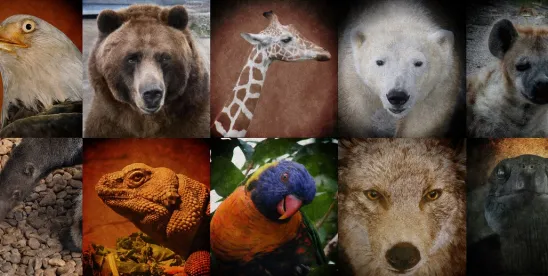Intentional genomic alterations (IGAs) in animals refer to deliberate changes made to the genetic material of animals. These alterations are designed to introduce, remove or modify specific traits in animals for various purposes, such as improving agricultural productivity, enhancing disease resistance, and advancing biomedical research.
Practical applications include:
- Agriculture: IGAs are used to enhance traits such as growth rate, feed efficiency, disease resistance and product quality (e.g., leaner meat).
- Biomedical Research: Creating animal models that mimic human diseases for research and drug development.
- Conservation: Assisting in the preservation of endangered species by enhancing traits that improve survival and reproduction.
- Public Health: Developing animals that are less susceptible to diseases that can be transmitted to humans.
Companies or researchers looking to develop IGAs must submit detailed information to the FDA, including how the genetic changes are made, the purpose of the changes, and data on the safety and effectiveness of those changes. These details help the FDA ensure that genomic alterations in animals contribute positively to public health, animal welfare, and environmental sustainability.
In a May 1, 2024 news release, the FDA announced the publication two, updated guidance documents intended to clarify and streamline the process of evaluating, developing, and regulating IGAs in animals. On the heels of guidance issued in 2009 and 2017, these updated documents outline the information needed to demonstrate the safety and effectiveness of IGAs and are designed to assist developers understand the necessary steps for regulatory approval.
The first document, final Guidance for Industry (GFI) #187A, “Heritable Intentional Genomic Alterations in Animals: Risk-Based Approach,” delineates the FDA’s overarching policy for regulating IGAs in animals. This set of guidelines is intended to help companies, researchers, and the public understand the agency’s regulatory approach and factors that trigger the agency’s enforcement discretion over certain animal products.
The second document, draft GFI #187B, “Heritable Intentional Genomic Alterations in Animals: The Approval Process,” sets forth a higher level of technical guidance and describes how the approval process applies to IGAs in the founder animal and the associated lineage of animals. FDA requests public comment on GFI #187B for 90 days, starting on May 2, 2024. To ensure that FDA considers comments before it begins work on the final version of GFI #187B, members of the public should submit comments by July 31, 2024.
In its May 1 news release, the FDA reiterated its commitment to collaborate with its other regulatory partners on matters related to IGAs in animals. In particular, the FDA referenced an April 18, 2024 Memorandum of Understanding (MOU) that addressed information sharing and regulatory cooperation regarding IGAs in animals subject to USDA jurisdiction. The MOU clarified roles and responsibilities at FDA and USDA for the regulation of IGAs in animals, affirmed the FDA’s role as the lead agency, and established procedures to improve the exchange of information between the two agencies.
Cooperation between these federal agencies is needed to keep pace with the evolving science and technology associated with IGAs in animals. A comprehensive, yet efficient, approval and regulatory process is critical to ensuring that such innovations are safe and beneficial for both animals and humans. We will continue to monitor the scientific and regulatory developments and update this post as warranted.
This article was authored by Dana Clark, RN, BSN, CCM.



 />i
/>i

